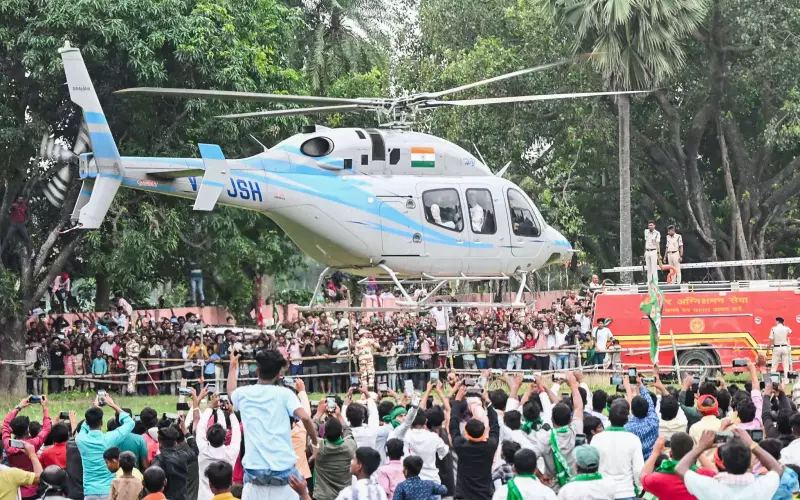
In an unexpected twist of fate, inclement weather conditions across Bihar have thrown a wrench into the carefully laid campaign plans of political heavyweights, forcing them to abandon their preferred aerial transport and hit the roads instead.
The skies over Bihar have turned uncooperative, with adverse weather patterns making helicopter travel unsafe for political leaders who typically rely on these birds-eye vehicles to cover multiple constituencies in record time. This meteorological intervention has dramatically altered campaign logistics across the state.
Roadways Become the New Political Highway
With helicopters grounded, politicians have been compelled to embrace terrestrial travel with renewed vigor. The sudden shift has seen:
- Convoys of political leaders navigating Bihar's road networks
- Extended travel times between campaign venues
- Revised scheduling for public rallies and meetings
- Increased reliance on ground-level coordination teams
Campaign Dynamics Transformed Overnight
The weather-induced transportation shift has created both challenges and unexpected opportunities for political outreach. While aerial mobility allowed for rapid coverage of distant constituencies, the road-based approach has forced politicians to engage more intimately with the landscape and its people.
This ground-level campaigning has created spontaneous interactions that helicopter travel simply cannot replicate. Political leaders are now experiencing firsthand the road conditions and infrastructure challenges that dominate voter concerns.
Logistical Nightmares and Silver Linings
Campaign managers are working overtime to recalibrate itineraries that were originally designed around helicopter travel. The increased transit time between venues has necessitated:
- Consolidation of campaign events in geographically closer areas
- Revised security arrangements for road travel
- Alternative communication strategies to manage last-minute changes
- Enhanced local coordination to maximize ground presence
Despite the disruptions, many political strategists see an unexpected benefit in this forced terrestrial approach. The increased visibility of political leaders traveling through towns and villages creates more personal connections with potential voters.
Weather Patterns Dictate Political Movements
Meteorological departments continue to monitor weather conditions that show little sign of immediate improvement. The persistent adverse weather serves as a reminder of nature's power to influence even the most carefully orchestrated political machinery.
As Bihar's political landscape adapts to these unforeseen circumstances, the very nature of election campaigning is being rewritten—not by political strategists, but by the whims of weather.





